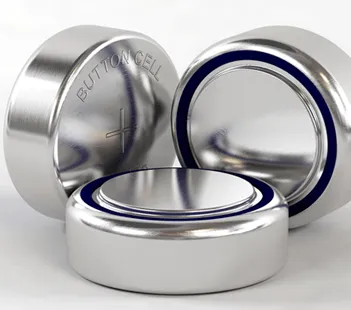January 01, 2017

Button Batteries
Small, coin-sized batteries can be found in products in nearly every home in America. From the flashlight sitting on the table, to the remote control next to the TV, "button batteries" as they are commonly referred to, are in thousands of products used in and around the home. Young children and senior adults are unintentionally swallowing the button batteries and in some cases, the consequences are immediate and devastating.
Button battery-related incidents are resulting in severe injury and fatalities across the United States and they are on the increase. Most of the reported incidents involve 20 mm diameter, or larger, 3 volt batteries. Sometimes the swallowed battery will pass through the intestine, but more often, the batteries become lodged in the throat or intestines where they generate and release hydroxide and cause dangerous chemical burns.
Incidents most often involve children younger than four years old and senior adults. In the majority of incidents, children gain access to batteries directly from games, toys, calculators, remote controls and other items commonly left within a child's reach. Senior adults have swallowed button batteries used in hearing aids after mistaking them for pills.
Parents often are unaware that a child has swallowed the button battery, which makes it difficult to diagnose the problem. In fact, more than 60% of reported incidents initially were misdiagnosed.
Symptoms resemble ailments common in children include an upset stomach, fever, and in some incidents, there are no symptoms at all. Tips to Prevent the Swallowing of Button Batteries:
- Discard button batteries carefully.
- Keep button batteries out of your child's reach to avoid their temptation to play with them.
- Caution hearing aid users to keep hearing aids and batteries out of the reach of children.
- Avoid putting button batteries in your mouth for any reason as they are easily swallowed accidentally.
- Always check medications before ingesting them. Adults have swallowed button batteries mistaken for pills or tablets.
- Keep remotes and other electronics out of your child's reach if the battery compartments do not have a screw to secure them.
- Use tape to help secure the battery compartment.
- Inspect your children’s toys for batteries.
Magnets
High-powered magnets are a safety risk to children - toddler through teen. An increasing number of incidents reported to CPSC indicate that children are swallowing these magnets and the injuries are serious.
When two or more magnets are swallowed, they attract to each other internally. Many incidents have resulted in surgeries to remove the magnets. When a magnet has to be removed surgically, it also can require repairing the child's damaged stomach and intestines.
If you suspect magnets have been swallowed:
- Seek immediate medical attention
- Medical symptoms to watch for are: abdominal pains, nausea, vomiting and diarrhea.
- In X-rays, multiple magnetic pieces may appear as a single object.
- These high-powered magnets are not the magnets off your grandfather's refrigerator door. They are up to eight times stronger than magnets that are used in toys.
If you suspect a magnet or button battery has been swallowed or ingested, immediately seek medical attention.
The National Battery Ingestion Hotline is available anytime at (202) 625-3333 (call collect if necessary) or call your poison center at (800) 222-1222.
(Sources: Consumer Product Safety Commission; Study conducted by Dr. Toby Litovitz of the National Capital Poison Center.)
Download Button Battery & Magnet Safety Tips PDF
© 2012 Denver Health

